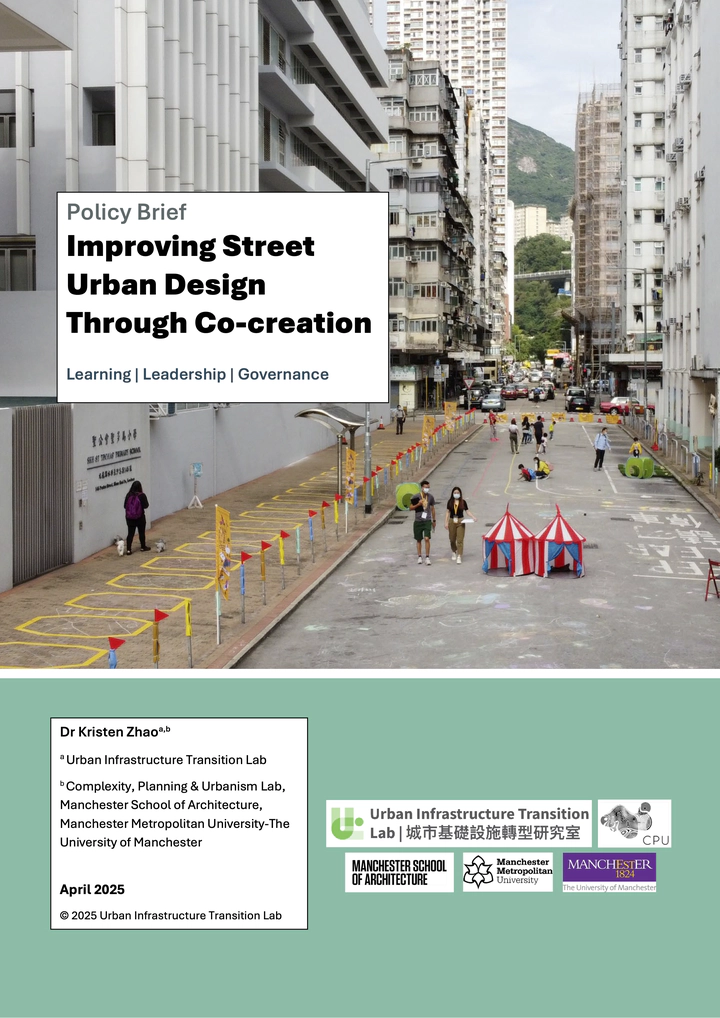 Policy Brief
Policy BriefAbstract
Hong Kong aspires to create a world-class, walkable environment (PlanD, 2016) and develop “interesting, vibrant, and mixed-used streets” (Development Bureau & Planning Department Hong Kong, 2016; Walk in HK & HKTD, 2019). Street experimentation has the potential to breakthrough conventional design regulations and develop new norms. In particular, government-civic collaboration can be an effective way to deliver community-oriented, engaging, and innovative street designs. While the Transport Department has previously partnered with civic organisations, the outcomes have been limited in scope and impact.
This policy brief identifies the challenges associated with innovative urban design and proposes actionable policy and managerial adaptations to enhance design outcomes. The insights presented are derived from the “Tactical Urbanism in Asian High-Density Cities” research project conducted by the Urban Infrastructure Transition Lab (uLab) from 2020 to 2024.